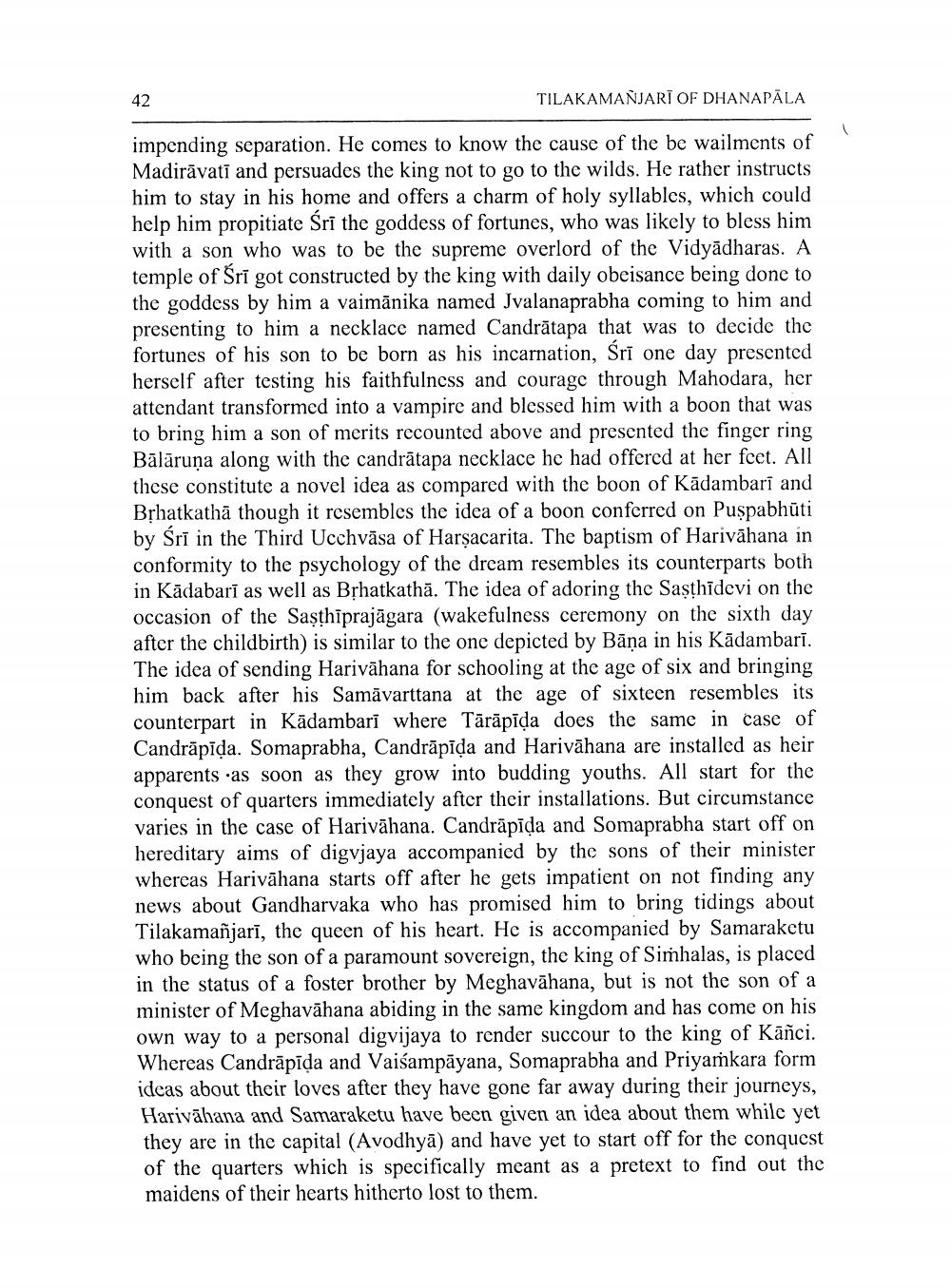________________
TILAKAMANJARĪ OF DHANAPĀLA
impending separation. He comes to know the cause of the be wailments of Madirāvatī and persuades the king not to go to the wilds. He rather instructs him to stay in his home and offers a charm of holy syllables, which could help him propitiate Sri the goddess of fortunes, who was likely to bless him with a son who was to be the supreme overlord of the Vidyādharas. A temple of Šrī got constructed by the king with daily obeisance being done to the goddess by him a vaimānika named Jvalanaprabha coming to him and presenting to him a necklace named Candrātapa that was to decide the fortunes of his son to be born as his incarnation, Śrī one day presented herself after testing his faithfulness and courage through Mahodara, her attendant transformed into a vampire and blessed him with a boon that was to bring him a son of merits recounted above and presented the finger ring Bālāruņa along with the candrātapa necklace he had offered at her feet. All these constitute a novel idea as compared with the boon of Kādambari and Brhatkathā though it resembles the idea of a boon conferred on Puspabhūti by Śrī in the Third Ucchvāsa of Harşacarita. The baptism of Harivāhana in conformity to the psychology of the dream resembles its counterparts both in Kādabarī as well as Brhatkathā. The idea of adoring the Sasthidevi on the occasion of the Sasthīprajāgara (wakefulness ceremony on the sixth day after the childbirth) is similar to the one depicted by Bāņa in his Kādambarī. The idea of sending Harivāhana for schooling at the age of six and bringing him back after his Samāvarttana at the age of sixteen resembles its counterpart in Kādambari where Tārāpīda does the same in case of Candrāpīda. Somaprabha, Candrāpīda and Harivāhana are installed as heir apparents as soon as they grow into budding youths. All start for the conquest of quarters immediately after their installations. But circumstance varies in the case of Harivāhana. Candrāpīda and Somaprabha start off on hereditary aims of digvjaya accompanied by the sons of their minister whereas Harivāhana starts off after he gets impatient on not finding any news about Gandharvaka who has promised him to bring tidings about Tilakamañjarī, the queen of his heart. He is accompanied by Samaraketu who being the son of a paramount sovereign, the king of Simhalas, is placed in the status of a foster brother by Meghavāhana, but is not the son of a minister of Meghavāhana abiding in the same kingdom and has come on his own way to a personal digvijaya to render succour to the king of Kāñci. Whereas Candrāpīda and Vaišampāyana, Somaprabha and Priyamkara form ideas about their loves after they have gone far away during their journeys, Harivāhana and Samaraketu have been given an idea about them while yet they are in the capital (Avodhyā) and have yet to start off for the conquest of the quarters which is specifically meant as a pretext to find out the maidens of their hearts hitherto lost to them.




